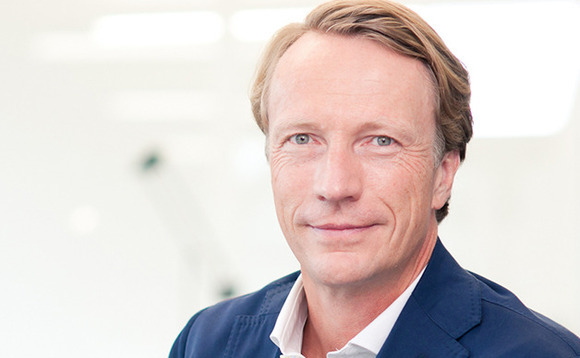
German PE develops a growing appetite for startups

As an increasing number of startups in the German market mature and become profitable, private equity interest in young companies is on the up. Katharina Semke reports
At the unquote" German Private Equity Forum in June 2016, one panel discussed how private equity and venture capital investors meet and work together. Their collaboration to grow young German businesses has become more relevant in recent years, due to the country's maturing startup scene. An example for private equity investment in a startup is the €11m series-B for German online cookware retailer Spring Lane in September last year, which was backed by buyout house Heliad Equity Partners as well as VCs.
High-Tech Gründerfonds (HTGF) managing director Alex von Frankenberg is delighted to see more GPs participating in funding rounds: "It is healthy for the startup system to raise high double-digit rounds so they can expand faster. We appreciate private equity coming into venture."
Earlybird founder and partner Hendrik Brandis (pictured above) also observes a rising participation among private equity: "I see growing interest in late-stage capital increases and partial secondary transactions, where private equity funds are buying out founders and business angels."
Sascha van Holt, CEO and head of investment management at corporate venture capitalist SevenVentures says GPs often invest with a strategic interest: "Private equity would often not buy a company on its own, but would buy it as an add-on to an existing portfolio company."
Benefit of different mind sets
The forum panellists agreed that the different investment approaches of VC and private equity can benefit all parties. "There is an impact in the way due diligence is performed. Private equity firms turn every stone. Venture capital investors do very different due diligence, more focused on the fundamental attractiveness of the business. We rather delegate the financial part to external parties. We can learn from each other," says Brandis.
Private equity's rigorous due diligence is a valuable lesson for young startups, according to von Frankenberg: "We get checklists from interested private equity firms. The startups need to show convincingly their path to profitability, which is a good exercise for them."
The fact that both types of investors are experienced in different stages of a company's development is another advantage for von Frankenberg: "Private equity brings to the table a support for a company through the growth phase. VCs often do not have a lot of experience with that. Private equity is also more experienced in exits, for example IPOs." He adds that private equity is also more rigid and controlling.
I see growing interest in late-stage capital increases and partial secondary transactions, where private equity funds are buying out founders and business angels" – Sascha van Holt, SevenVentures
As startups operate in all different sectors, they start generating profits and cash flow at very different stages. Those in the pharma sector, for example, conduct years of research, undertake years of trials and require medical approval before they can sell a finished product. The risk in healthcare startups is therefore often too high for private equity.
Asked about sectors that invite private equity and venture capital collaboration, Frankenberg therefore admits that the medtech and biotech companies in HTGF's portfolio can have a hard time attracting interest from GPs. He sees e-commerce startups with a clear path to profitability as the winners in these situations. Earlybird's Brandis adds that "GPs are looking for strong cash flows", suggesting social gaming companies are often very cash rich. For SevenVentures' van Holt, the consumer products and consumer retail sector is also potentially interesting for private equity.
America in the lead
It is especially the growth phase where startups in Germany need more support and where the lack of funding compared to the US is most severe. Brandis explains this is due to an underlying factor in the European VC scene: "The LPs in the US are often pension funds and endowments. In Germany, a lot of the investors are either public institutions or family offices, who provide smaller investments."
Brandis believes the smaller funding rounds in Europe are not due to a lack of opportunities, but a lack of sizable tickets by the VCs, while for the American growth funds, the deals are often not large enough to step in.
A lack of funding during growth phase is a problem that the Germany's venture scene will not solve in the short term. For risk averse buyout houses in the country, investing in startups could be a gamble at times, but also a means of deploying capital given current high levels of dry powder.
Latest News
Stonehage Fleming raises USD 130m for largest fund to date, eyes 2024 programme
Sponsor acquired the public software group in July 2017 via the same-year vintage Partners Group Global Value 2017
Stonehage Fleming raises USD 130m for largest fund to date, eyes 2024 programme
Czech Republic-headquartered family office is targeting DACH and CEE region deals
Stonehage Fleming raises USD 130m for largest fund to date, eyes 2024 programme
Ex-Rocket Internet leader Bettina Curtze joins Swiss VC firm as partner and CFO
Stonehage Fleming raises USD 130m for largest fund to date, eyes 2024 programme
Estonia-registered VC could bolster LP base with fresh capital from funds-of-funds or pension funds









